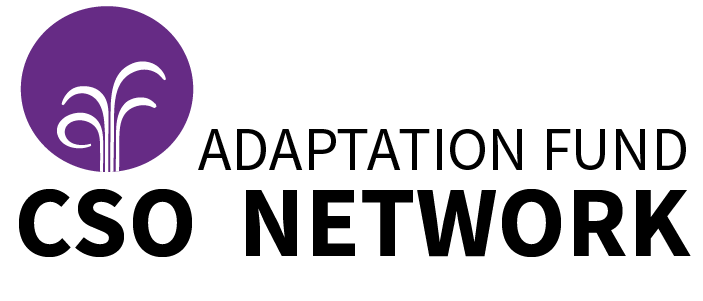Core partner organisations - The Network's governing body

The Adaptation Fund NGO Network's governing body is composed of eleven core partner organisations from civil society that represent the voices and interests of the people most vulnerable to climate change in their region, and closely engage with the Network's more than 250 associate CSOs worldwide. These organisations jointly formulate the Network's positions and policy recommendations, based on the inputs and contributions from the Network's associate CSOs. The core partner organisations take their decisions on the Network's policy recommendations by consensus.
Because the Adaptation Fund implements its adaptation actions in developing countries, all core partner organisations in the NGO Network's governing body are from the global South. The Network aims to reflect the Fund's project portfolio in the composition of core partner organisations ensuring regional balance and diversity as well as the representation of CSOs from least developed countries (LDC) and small island developing states (SIDS).
Core partner organisations:
- Association pour la Conservation de la Nature au Rwanda (ACNR) - Rwanda
- Development Alternatives / Climate Action Network-South Asia - India
- ForumCC - Tanzania
- ENDA Energie - Senegal
- Fundación Futuro Latinoamericano (FFLA) - Ecuador
- Fundación Hondureña de Ambiente y Desarrollo (Fundación Vida) - Honduras
- Green Alternative - Georgia
- Indigo Development and Change - South Africa
- Jeunes Volontaires pour l'Environnement (JVE) - Benin
- Panos Caribbean - Jamaica/Haiti/Caribbean
- The Royal Marine Conservation Society of Jordan (JREDS) - Jordan
Association pour la Conservation de la Nature au Rwanda (ACNR) - Rwanda
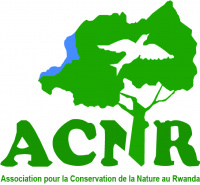
The “Association pour la Conservation de la Nature au Rwanda" (ACNR) is a non-governmental and non-profit membership-based organisation established in 1992. It is dedicated to the promotion of biodiversity conservation through participatory and sustainable management of natural resources in Rwanda. Amongst others, ACNR advocates for policies and laws that support the full social, economic and environmental values of biodiversity and ecological goods and services. ACNR implements various climate change adaptation-related projects in Rwanda and is represented in different national climate change fora. ACNR contributes to build adaptive capacity in Rwanda by enabling vulnerable local communities to cope with the negative impacts of climate change.
ACNR joined the Adaptation Fund NGO Network in 2014 and observed and accompanied the implementation of the Adaptation Fund project in Rwanda as an independent civil society observer. It continues to provide insights on Adaptation Fund processes and projects, especially at national and at East African level.
Main contact:
Serge Joram Nsengimana
Senior Advisor, Environmental Conservation and Partnerships
ACNR
jserge.nsengimana@gmail.com
+ 250 788530015
Development Alternatives / Climate Action Network-South Asia - India

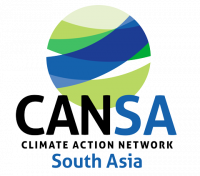
Development Alternatives (DA) and the Climate Action Network South Asia (CANSA) are working in a consortium as core partner organisations for the Adaptation Fund NGO Network.
DA is part of the DA Group, a social enterprise based in India and dedicated to sustainable development. DA engages in scientific research and innovation, on-the-ground implementation of eco solutions, as well as communication and policy influence. It is dedicated to systemic transformation through analysing the need for changes in the existing societal and economic order to ensure the wellbeing of the marginalised and maintenance and regeneration of health of the environment. DA's activities cover three main areas: the design and large-scale dissemination of appropriate technologies, rational environmental management systems, and equitable people-oriented institutions and policies.
CANSA is a coalition of over 150 civil society organisations working in eight South Asian countries to limit human-induced climate change in a manner that promotes equity and social justice between peoples, sustainable development of all communities and protection of the global environment. CANSA represents Southern perspectives at international climate negotiations and undertakes inter-governmental, regional, and national actions. It aims at linking policy work, research and action based work in the region to contribute towards workable solutions to the adverse effects of climate change in the region.
Main Contacts:
Gitika Goswami
Programme Director
Development Alternatives
ggoswami@devalt.org
Santosh Patnaik
Deputy Programme Coordinator
CANSA
santosh@cansouthasia.net
ForumCC - Tanzania

FORUMCC is a local non-profit membership-based organization focusing on climate change. ForumCC's objective is to ensure lasting practical solutions to the negative impacts of climate change. Its approach is to work with and through its member organizations at local and national level from different parts of Tanzania. It has a membership base of more than 160 organizations and local networks. FORUMCC provides a platform for dialogue, campaigning and advocacy aiming for inclusive climate change policies and actions at all levels. Climate finance is at the core of ForumCC's work as one of the means for implementation. ForumCC works with allies and partners at regional and international level and is a member of regional and global networks such as the Pan African Climate Justice Alliance (PACJA).
FORUMCC joined the Adaptation Fund NGO Network in October 2012 and has been monitoring Tanzania's Adaption Fund projects. It has produced reports and policy briefs, tracked climate finance flows, and contributed to awareness raising activities and policy advocacy on Adaption Fund processes in Tanzania.
Main contact:
Euphrasia John Shayo
Programme Officer
FORUMCC
e.shayo@forumcc.org
+255 659 266 326
ENDA Energie - Senegal

ENDA Energie is an international NGO founded in 1982 and based in Dakar, Senegal. It is a member of the ENDA Tiers Monde network. ENDA's main objective is poverty reduction, and it focusses on three priority themes: Sustainable energy access for vulnerable groups; climate change and desertification; and sustainable development and green economy. ENDA Energie pursues its objective by conducting advocacy work, awareness-raising and capacity-building activities as well as national multi-stakeholder dialogues on climate justice. It works with grassroots groups in the search of alternative development methods based on the experiences and expectations of the most vulnerable populations. ENDA Energie also actively engages in national and international processes, including the UNFCCC process. ENDA Energie is well connected with Senegalese and West and Central African civil society. It coordinates the Climate & Development Network, which now comprises more than 50 NGOs in the region.
The organisation has many years of experience in bringing together various actors (the private sector, government, academics and civil society). It believes that all relevant stakeholders can work jointly on problem solving.
Main contact:
Emmanuel Seck
Programme Coordinator
Enda Energie
emmanuel.seck@endaenergie.org
Fundación Futuro Latinoamericano (FFLA) - Ecuador
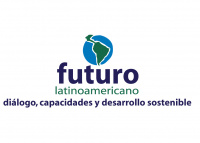
Fundación Futuro Latinoamericano (FFLA) is a non-profit organization based in Quito, created in 1993. FFLA´s mission is to work towards sustainable development in Latin America through constructive dialogue and conflict transformation, strengthened citizen participation and improved political and institutional capacities. It engages with several international, national and local climate change projects and stakeholders. FFLA is the Executive Secretary of the Latin American Platform on Climate Change and regional facilitator of the Climate and Development Knowledge Network (CDKN). Through CDKN, FFLA has coordinated more than 50 climate change adaptation and mitigation projects in the region, applying multisector and multilevel participation approaches, capacity building, effective dialogue, and project and policy evaluations. FFLA emphasizes a strong knowledge management approach by generating policy briefs, working papers, inside stories, webinars, etc.
FFLA joined the Adaptation Fund NGO Network in 2018 and coordinates the Latin America hub for the Network. FFLA did an independent assessment of the Adaptation Fund project on enhancing community resilience in Pichincha Province and the Jubones river basin in Ecuador.
Main contact:
Patricia Velasco
Regional Coordinator of Climate Change, Water and Energy
Fundación Futuro Latinoamericano
patricia.velasco@ffla.net
+593(0)996148053
Fundación Hondureña de Ambiente y Desarrollo (Fundación Vida) - Honduras
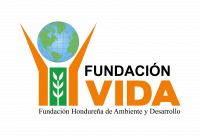
The Honduran Foundation for Environment and Development, Fundación Vida, is a non-governmental organization based in Tegucigalpa, capital of Honduras, founded in 1992. Fundación Vida´s mission is to promote sustainable development in the country. It did so in its initial years as an environmental fund, supporting conservation initiatives (protected areas, watershed management, natural resources management and environmental education) around the country. It focuses on integrated energy solutions, climate adapted watersheds, environmental governance and financial environmental services.
Fundación Vida has been involved in initiatives related to adaptation to climate change throughout its life. It joined the Adaptation Fund NGO Network in 2011 and was engaged as an independent observer in assessing the first Adaption Fund project in Honduras. Recently Fundación Vida has also started to engage in the country's second national Adaption Fund project as a civil society observer organisation.
Main Contact:
Julio Cárcamo R.
Executive Director
Fundación Vida
julio_carcamo@fundacionvida.org
+504 22393790
Green Alternative - Georgia

Green Alternative is an active environmental advocacy group established in 2000. Its mission is to protect the environment and the biological and cultural heritage of Georgia by promoting economically sound and socially acceptable alternatives, establishing principles of environmental and social justice and upholding public access to information and decision-making processes.
Green Alternative is actively engaged in projects and policies of the energy, transport and extractive industry sectors in order to ensure their sustainability and minimize negative impacts on the environment and climate. Climate change has detrimental environmental and social impacts on Georgia’s nature and society and thus requires urgent adaptation measures. We believe that adaptation policies and projects must address the needs and priorities of the country. Projects can only achieve sustainable results if civil society and affected communities are involved in decision-making processes. Therefore, Green Alternative is interested in monitoring and participating in adaptation action funded by international financial institutions, to ensure their sustainability, cost efficiency and local ownership.
Main contact:
Mariam Devidze
Project coordinator
Green Alternative
mdevidze@greenalt.org
+995 598 961662
Indigo Development and Change - South Africa
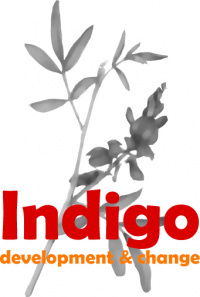
Indigo development & change facilitates the empowerment of disadvantaged groups, contributing towards a socially just society while conserving biodiversity in rural areas of South Africa and in the context of changing natural and social systems. This is achieved through the development of participatory approaches, the active development of local and global networks and capacity development processes.
Indigo has engaged on a range of local and international climate change adaptation activities, with a particular focus on supporting local adaptation practices in the Suid Bokkeveld community, near the rural village of Nieuwoudtville in the Northern Cape province of South Africa. At a national level, Indigo worked to establish the Adaptation Network, which brings together a range of climate change practitioners in the region, and still serves on the Steering Committee of this network.
Indigo joined the Adaptation Fund NGO Network in 2012 and co-ordinates the Southern African node for this network. Indigo has continued to play an active role in observing the national implementation of projects funded by the Adaptation Fund in South Africa.
Main contact:
Elin Lorimer
Project Manager
Indigo Development and Change
elin@indigo-dc.org
+27 83 399 8332
Jeunes Volontaires pour l'Environnement (JVE) - Benin

Jeunes Volontaires pour l’Environnement (JVE-Benin) is a non-governmental organization operating in Benin since 2010. It all started in the mid-1990s as a simple initiative of young students from the village of Kpélé Tsiko in the Plateau region of Togo Republic. JVE was created in 2001 in Togo and its activities in Benin started in 2004. JVE is now present in 25 African countries. JVE's mission is to empower vulnerable groups for sustainable development instigation through education and capacity building. JVE-Benin promotes sustainable development by addressing topics like: climate change, renewable energies, youth and women empowerment, environmental protection, biodiversity, water and sanitation, eco-citizenship, green entrepreneurship, leadership, climate finance and advocacy. JVE-Benin is member of the national climate change committee in Benin.
As a member of the Adaptation Fund NGO Network, JVE-Benin observes and accompanies adaptation related processes in Benin. The organization aims at advocating for, and contributing to sustainable adaptation initiatives for the benefit of more vulnerable people.
Main contact:
Mawusé Hountondji
Executive Director
JVE-Benin
mawuseh@gmail.com
+ 229 21 32 08 38
Panos Caribbean - Jamaica/Haiti/Caribbean

The mission of Panos Caribbean is to promote sustainable development and social justice in the Wider Caribbean region by empowering people, especially the poor and vulnerable, to produce information and share their perspectives on development issues across language and political borders. Panos Caribbean envisions a Caribbean society in which independent, accurate and timely information is fully utilised as a key resource for development; and where local, marginalised and vulnerable people, groups and communities have access to such information, and the ability and opportunity to express their views, realities and expectations.
Panos Caribbean focuses on themes that transcend national boundaries, such as child rights, HIV/AIDS, climate justice, environmental degradation, gender and community solutions to development challenges. Panos’ work on climate justice includes awareness programmes, notably with the involvement of artists, training and mobilisation of journalists, documentation of climate change impacts on vulnerable groups and communities, and promotion of community-based, participatory and equitable adaptation solutions.
Main contact:
Yves Renard
Interim Coordinator
Panos Caribbean
yves.renard@panoscaribbean.org
The Royal Marine Conservation Society of Jordan (JREDS) - Jordan
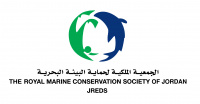
The Royal Marine Conservation Society of Jordan (JREDS) was founded in 1993 and became the first specialized Jordanian non-profit and non-governmental organization dedicated to the conservation of the marine environment. Since then JREDS programming has evolved towards a more comprehensive way of thinking, focusing on marine conservation and sustainable development through outreach and advocacy activities. Part of its strategic areas is to involve and empower communities through education and awareness programs, with special emphasis on the youth. JREDS also develops and implements environmental advocacy programs through networking with national, regional and global partners.
JREDS is an active NGO in Jordan and participated in the development of various national strategies related to climate change such as the country's climate change policy, Nationally Determined Contribution (NDC) and National Adaptation Plan (NAP). JREDS has implemented various projects related to adaptation such as "Young Climate Leaders" and integrated coastal zone management (ICZM) at Aqaba. In addition, it has led the development of capacity for people from the Middle East on climate change adaptation strategies.
Main contact:
Diala N Al-Alami
Executive Director
JREDS
director@jreds.org
Civil Society Engagement under the Adaptation Fund

Snapshots of adaptation within the AF NGO Network partner countries Honduras, Jamaica, Senegal, Benin, South Africa, Tanzania, Jordan, Kenya and Cambiodia.
